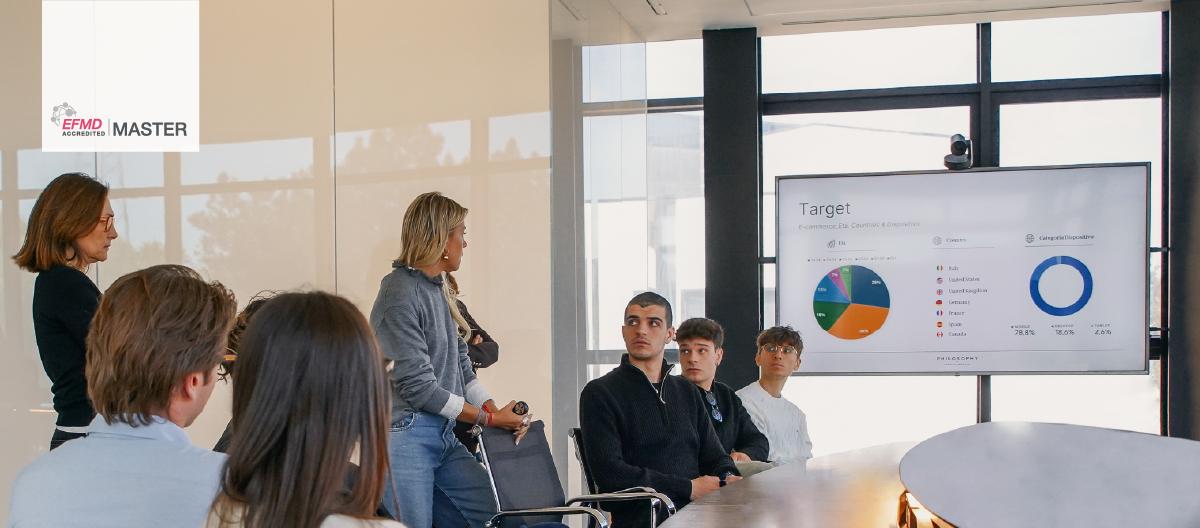
Influencing with facts
GOALS
The Master in Data Science and Business Analytics is designed to provide specialized and interdisciplinary training for those who wish to acquire data analytics skills.
In the city that is home to the Leonardo supercomputer, the fourth highest computing capacity in the world and part of the European high-performance network EuroHPC, this multidisciplinary master’s program aims to train managers to bring out their skills in speculative analysis, using artificial intelligence, machine learning and mathematical statistics, to design, improve and optimize business processes.
Thanks to the BBS network and the School’s Career Service, ready to support students in their career planning, the placement rate six months after the end of the course exceeds 90%.
English-language, full-time 12-month, with 500 hours of internship in leading BBS partner companies, the Master in Data Science and Business Analytics, has been awarded EFMD accreditation, the leading international system for assessing, improving and accrediting the quality of management programs.
WHO IS IT FOR?
Young graduates from all disciplines who want to learn how to turn data into business decision making and strategies, building a solid base for a career focused on data analytics. The ability to extract valuable insights from data and communicate them effectively across different departments is critical for tomorrow’s leaders. This Master equips you with the essential technical skills and business attitude to thrive in today’s data-centric world. You’ll learn to navigate the complexities of big data, advanced analytics, and machine learning, while staying focused on strategic decision-making and driving innovation in organizations.
CAREER OPPORTUNITIES
One of the strengths of the Master in Data Science and Business Analytics is its transversality: those who join this path will have all the skills to become a connection point in the company, performing various functions and becoming the key point of decision-making steps. With this Master you can aspire to positions as Data Scientist, Data Analytics Consultant and Business Intelligence Manager, among others.
If you would like to be at the forefront of a key sector for the growth of multinational companies, contact the master Program Manager.
SERVICES
Bologna Business School provides student support services included in the tuition fee for the Master.
Programme Advisory Committee:
- Gildo Bosi – Head of R&D Automation, SACMI
- Marco Breda – Director of the University Laboratory on Artificial Intelligence, Uninettuno
- Lucia Chierchia – Managing Partner, Gellify
- Stefano Da Col – CEO & Founder, Analytics Network
- Lam Hoang – Research Staff Member, IBM Research Europe – Ireland
- Sameer Rohadia – Business Intelligence Developer for Mobile App, Hannover RE
- Jacopo Romagnoli – Head of Innovation and WEB3, VAR Group
Ranking
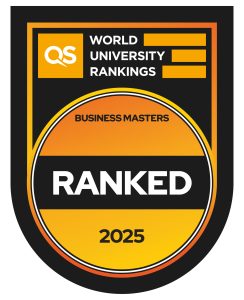
QS Quacquarelli Symonds is the international network focused on services, analysis and in-depth reports of post-experience and university education, geared toward international mobility and career development. The QS Online MBA Ranking is based on insights from the business world and a methodology that allows programs to be evaluated according to four parameters: Faculty and Teaching, Class Profile, Employability and Class Experience.
Accreditation

Bologna Business School is EQUIS – EFMD Quality Improvement System accredited, one of the most important international quality assessment and continuous improvement systems for Schools of Management and Business Administration.
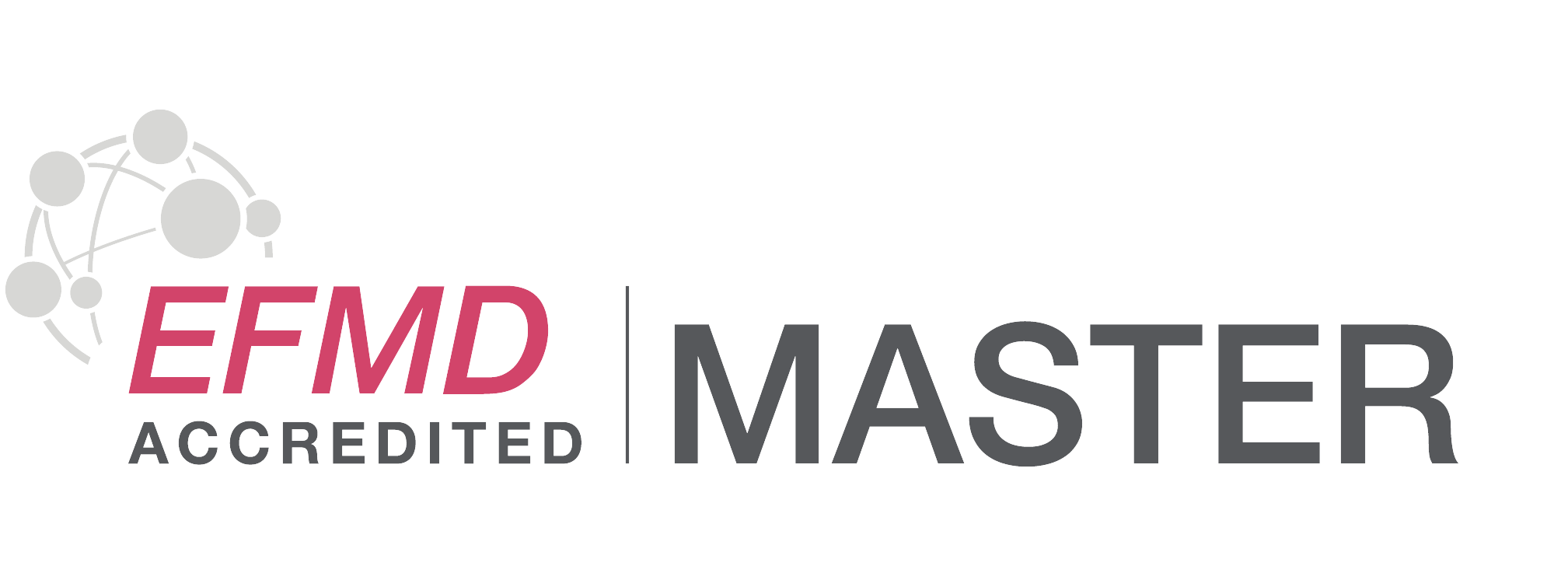
This program has achieved EFMD accreditation, the leading international system for quality assessment, improvement and accreditation of business programs.

Claudio Sartori
Director of Studies
claudio.sartori@unibo.it
" With this Master you will learn techniques used to manage, manipulate and analyze increasing amounts of data that trace and nourish the economic and social processes of today. You will also learn how these techniques can be effectively used in businesses for value creation and how the results can be effectively communicated and made available to recipients. "

Sidorela Topi
" The Master in Data Science allowed me to acquire skills that are increasingly sought after in the international job market, combining my financial background with statistics and machine learning through a highly functional approach and practical applications. Thanks to the BBS network I met wonderful people who enriched me with their culture and I got in touch with some of the most important Italian companies, where I got to know the company where I did my internship. Today I'm Data Scientist at Analytics Network. "
CLASS PROFILE A.Y. 2024/2025
GEOGRAPHICAL ORIGIN
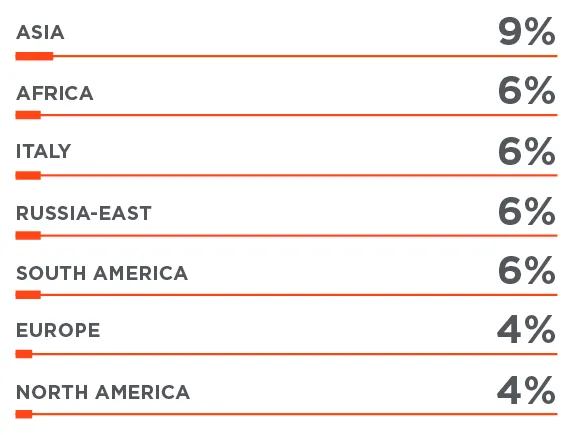
ACADEMIC BACKGROUND
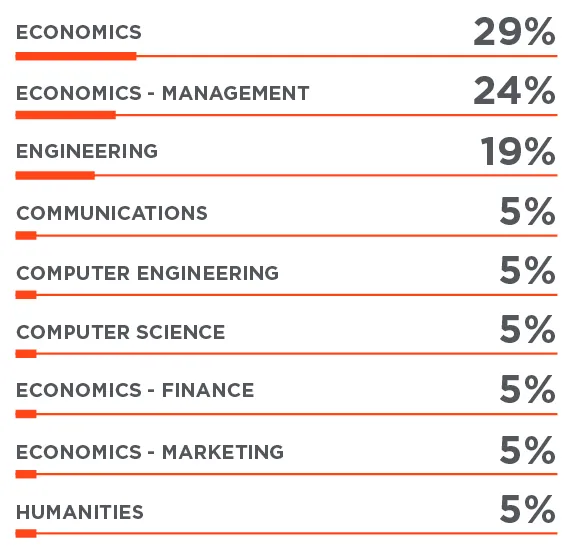
-
27 y.o.
AVERAGE AGE
-
86%
INTERNATIONAL STUDENTS
-
15
COUNTRIES REPRESENTED
-
38%
FEMALE STUDENTS
Structure
The Master in Data Science and Business Analytics is a full-time program structured in 1.500 hours of learning activities over 12 months of study, divided into: 400 hours of lecturing, an estimated 600 hours of independent study, and 500 hours of internship.
The structure of the Master is divided into:
- First term: October 2025 – March 2026
- Second term: March 2026 – June 2026
- Internship: June 2026 – October 2026
The Master offers a series of pre-courses at the start of the academic schedule: Software programming (Python), data-base and SQL, statistics, finance and accounting.
Following the period of lessons and projects, students will start an internship that can be carried out at companies or agencies in Italy or abroad. This experience allows students to practically apply the theoretical and practical skills acquired during their studies, learning directly from industry pleadres. At the end of the internship, the student will present a “Final Report” to the Director of Studies, containing a description of the activities performed and an analysis of the knowledge gained during the classes period.
For international students, the School offers the opportunity to participate in an Italian language course during the classroom study period.
The Master is held on campus at Bologna Business School. Attendance involves approximately 30 hours of weekly classes, structured to allow time for group work while also ensuring attention to individual students and the management of interpersonal relationships.
COURSES
Big Data is a big challenge in today’s world. Companies and public entities urgently need to manage the acquisition, presentation, sharing, analysis and visualization of data.
The first module starts with a general overview of the Data Revolution and Industry 4.0 and then jumps into the world of technologies and architectures provided by the main cloud and technology vendors. In the second part, the course explores how to use structured and unstructured data at their best, so to jump in the “AI world” to get insights to provide support to business decisions, with some case studies.
Baffetti FedericoThe laboratory work plan addresses the complete process of data analysis, starting with loading data using different approaches and developing models for analyzing and visualizing the results. It will study some programming languages (as R, Python and TensorFlow) with reference to their specific use in High Performance Computing (HPC). In this context it will use libraries for parallel computing (H2O) and libraries for Deep Learning (Keras).
It will cover also software for the creation of graphic Workflow for Data Analytics, as Knime and Orange. The work plan provides for the developing of a project during a Kaggle competition at the end of the course.
The course is coordinated by Giorgio Pedrazzi and will be hold by CINECA staff, the largest Italian computing centre (Dipartimento Super Calcolo, Applicazioni e Innovazione and Laboratorio Big Data e Analytics).
Pedrazzi GiorgioThe course discusses some relevant themes related to blockchain technologies, cryptocurrencies, ICOs, smart contracts and novel applications that can be built over the blockchain. Bitcoin and novel cryptocurrencies gathered momentum in the last months. More and more investors look with interest at these technologies, while others label them as a dangerous speculative bubble. The truth is that the blockchain, and the alternative implementations of a distributed ledger, represent very innovative technologies, that can be exploited to build novel distributed applications. Moreover, the possibility of creating smart contracts, running on top of the blockchain, permits trusted interactions and agreements among different (and possibly anonymous) parties, without the need for a central authority. This course will illustrate the main principles and conceptual foundations of the blockchain and smart contracts.
Ferretti StefanoThe course focuses on data protection law. After a brief overview of the Italian and European framework, the course will focus on the new General Data Protection Regulation, applicable all around Europe since May 2018. The course aims at exploring the relevant obligations of controllers and processors. Specific attention will also be paid to conditions of lawfulness of the processing, data subjects’ rights and controller’s accountability.
Miandar Toloue
The goal of the course is to introduce business intelligence (BI) platforms, with specific reference to data warehouses seen as an enabling technology for BI. Teaching will be mainly focused on OLAP, multidimensional modelling (at both the conceptual and logical level), and self-service BI. Some notions about data integration and cleaning will be provided.
Gallinucci EnricoRizzi Stefano
Today it is crucial to be able to use data for making better marketing decisions. This is possible by better understanding, predicting and managing customers’ behavior in a landscape where customers and brands (firms) are decision makers. This course focuses on the applied use of various techniques/methods, theories and approaches from marketing literature in practical business cases. In more particular words this means exploring, investigating and predicting behavioral and attitudinal (customer) data to provide data-driven answers to relevant marketing questions
Konus UmutThis course is a natural continuation of the Machine Learning course. It provides guidelines for running a Data Mining process and then discusses, with practical examples, the complete pipeline from data to machine learning concepts.
In particular, the following topics are covered:
- The functions of Data Mining.
- Supervised and unsupervised learning.
- Algorithms and methods for constructing classification models.
- Clustering algorithms.
- Algorithms for discovering association rules.
- Methods for evaluating the quality of data mining results.
Principles are introduced in class with presentation of slides and stimulating discussions with students. Methods are then applied with laboratory exercises.
Francia Matteo
Gallinucci Enrico
Sartori Claudio
The course is focused on understanding of the opportunities arisen from digital transformation, in terms of innovative business models for companies and new value for users. Specifically, the course will deepen technology forecasting and technology roadmapping methodologies, applied to emerging digital trends, focusing on Fintech, IoT and Artificial Intelligence.
The digitization of the economy is one of the most relevant issues of our time. The objective of this course is to analyze how digital economy has fundamentally challenged traditional business models and created new business opportunities. We will start with a brief introduction of the digital economy and then analyze the specific business strategies adopted by the different players in this ecosystem, specifically platforms. We will also discuss the implications for public policy and regulation. In particular, we will consider whether new business practices and contracts in the digital economy are beneficial or detrimental to society. Real case studies related to Amazon, Airbnb, Booking.com, Facebook, Google, Uber, and others, will be analyzed.
MantovaniThe course focuses on the finance aspects following the life cycle of young and innovative ventures from their start-up. These young ventures usually require substantial outside financing in early stages to eventually create employment, growth, social contributions and tax revenues in their future. Bank financing is hardly available for these ventures and therefore, all funds need to be raised from other sources, e.g. friends and family, business angels, or from professional financial intermediaries, so-called venture capital and private equity funds. Besides those traditional channels, ventures can raise funds from “the crowd” using digital platforms (crowdfunding) or blockchain-based technologies (ICOs).
Groh AlexanderArtificial intelligence (AI) is a discipline whose goal is to realize this dream through the use of a wide variety of techniques, from logic-based symbolic computation to sub-symbolic models inspired by the structure of the brain, such as neural networks. This course will provide an introductory overview of the various existing artificial intelligence techniques, focusing on industrial applications, discussing future challenges and opportunities, and also addressing some of the social, economic, and ethical implications.
Gabbrielli MaurizioRoberto Amadini
The aim is to provide basic knowledge concerning the main concepts and principles of computer security (e.g., risk, tools for risk assessment and evaluation, attacks and their typical structure, resources, functional systems requirements, human component). In this way, the course will provide the basic tools for the design and implementation of reasonably secure systems. During this process, either methodological, technological and behavioral aspects (i.e. operation security) need to be considered.
D’Angelo GabrieleThe course analyzes the legal framework of the rights of the person when dealing with technology, the protection of personal data, the intersection between person and market in the face of technological platforms and big data, the normative references of GDPR, Digital Service Act and other legal formats with a global vocation. Attention will be paid to the ethical challenge underlying the balance between human intervention and artificial intelligence, to the comparison between legal language and algorithms from the applicability of models to the role of law and regulation in the face of technological change and to the governance and risk management of data.
Some insights concern automated decisions, profiling in the credit and in the insurance sector and the coexistence between incumbents and new entrants in the financial sector.
This course provides an introduction to the basic principles and methods of Data Mining and Machine Learning, with emphasis on Classification, Clustering, Association Rules, Outlier discovery. Analysis of the main problems related to data quality and data transformation. Python will be used as part of the course to solve machine learning problems.
Sartori ClaudioNeural networks are a class of machine learning algorithms, originally inspired by the brain, structured in layers of interconnected artificial neurons.
The network can be trained on data to optimize its connections to a specific task.
Deep neural networks, that is networks with multiple internal (so called hidden) layers, have recently seen a lot of success at practical applications. They’re at the heart of production systems at companies like Google and Facebook for image classification, speech recognition, natural language processing, language understanding or robotics.
The course gives an overview of the foundational ideas and the recent advances in neural nets, explaining the potentialities of the topic for practical purposes. We shall cover supervised and unsupervised techniques, methods for visualizing and understanding the behavior on neural nets, as well as adversarial techniques to fool them. We shall also hints to recent applications in the field of reinforcement learning, and some amazing results in game simulation.
Asperti AndreaThe course will detail typical operations management issues by taking a quantitative approach for supporting decision-making processes. The main topics covered in the course will focus on the modelling and simulation of the organizational processes aimed at supporting companies’ strategy implementation. In particular, the course grounds on the principles of system thinking to help participants to model and to understand the dynamic interplay among people, decisions and resources involved in companies’ operations. The aim of the course is to hone decision-makers’ capabilities to capture the deep causal structure that generates events and phenomena thereby foreseeing long-term consequences of decisions and actions. In the course, participants will learn how to build a computer model of complex organizational processes in order to conduct “what-if” and scenario analysis.
Fedorova AnnaThe course aims to explore the principles of financial statement analysis. It provides the participants with a framework to understand how businesses’ value and risks are captured in financial statements and price them correctly.
Dal Maso LorenzoMonaco Eleonora
This course emphasizes statistical methods useful for tackling modern-day data analysis problems. A special attention is dedicated to techniques that help managers to make intelligent use of databases by recognizing patterns and making predictions.
The students will develope skills to:
• plan a statistical data analysis process
• manage a data source
• choose the best method to analyze the data
• implement the analysis and interpret the results
Farné Matteo
The goal of the course unit is to present theoretical and practical aspects of text mining regarding text classification and sentiment analysis & opinion mining.
The learning outcomes are technical capabilities of coping with text processing, text classification, sentiment analysis & opinion mining, transfer learning, using also deep neural networks, language models and explanation text mining.
Frisoni GiacomoMoro Gianluca
Learning approach
The Master’s program is designed to provide a solid theoretical basis, immediately complemented by practical applications, to prepare students to confidently and competently enter the job market. The teaching activities are designed to be practical and experiential, promoting effective learning and comprehensive assessment by the instructors.
The program combines lectures, business case studies, group work and company presentations, offering an interactive approach. Additionally, master lectures delivered by experts from the business, academic, and political areas, along with numerous opportunities to engage with companies through the analysis of case histories, further enrich the learning experience.
Faculty
Faculty members at Bologna Business School work together offering outstanding teaching standards. An international and interdisciplinary approach is guaranteed by a joint team of distinguished national core professors, adjunct, visiting professors, guest speakers and top managers.
-
Andrea Asperti
Full Professor of Machine Learning and Deep Learning
University of Bologna
-
Federico Baffetti
Founder & CEO di Efficiento
-
Furio Camillo
Associate Professor
University of Bologna
-
Gabriele D'Angelo
Assistant Professor of Computer Science and Engineering
University of Bologna
-
Lorenzo Dal Maso
Associate Professor of Financial Accounting
University of Bologna
-
Matteo Farné
Associate Professor
University of Bologna
-
Anna Fedorova
Adjunct Professor
University of Bologna
-
Stefano Ferretti
Associate Professor of Information Technology
University of Bologna
-
Matteo Francia
Assistant Professor of Computer Science and Engineering
University of Bologna
-
Giacomo Frisoni
Ph.D. student at the Department of Computer Science and Engineering
University of Bologna
-
Maurizio Gabbrielli
Full Professor of Computer Science
University of Bologna
-
Enrico Gallinucci
Fixed-term Researcher in Tenure Track of Business Intelligence and Big Data
University of Bologna
-
Alexander Groh
Full Professor of Finance
EMLYON Business School
-
Umut Konus
Professor and Researcher of Marketing Analytics & Digital Business, and Program Director of Bachelor Programs in Business Analytics
University of Amsterdam
-
Paola Manes
Full Professor of Private Law
University of Bologna
-
Andrea Mantovani
Associate Professor
Toulouse Business School
-
Azzurra Meoli
Assistant Professor of Business and Management Engineering
University of Bologna
-
Toloue Miandar
Junior Assistant Professor of Organization and Human Resource Management
University of Bologna
-
Eleonora Monaco
Associate Professor of Accounting
University of Bologna
-
Gianluca Moro
Assistant Professor of Information Processing Systems
University of Bologna
-
Giorgio Pedrazzi
Data Scientist
Cineca
-
Stefano Rizzi
Full Professor of Computer Science
University of Bologna
-
Roberto Amadini
Associate Professor of Computer Science
University of Bologna
-
Claudio Sartori
Full Professor of Machine Learning and Informatics
University of Bologna
CAREER DEVELOPMENT
The School is fully committed to creating employability, by way of a systematic career service action, constantly focused on matching at best the students’ professional projects with the needs companies have.
The internship is an exceptional springboard, suffice it to say that six months after the end of the full-time masters at Bologna Business School on average 91% of students work in a company.
The BBS Career Service assists and supports students since the very beginning, along a training and professional development path. This is accomplished by organizing a series of workshops, with the aim of providing the fundamental tools and resources to be appropriately prepared for the labor market.
To achieve this goal, students are involved in several workshops, among which we may list:
- Writing a CV and a Cover Letter
- How to create an effective Linkedin profile
- How to prepare for a job interview
In addition to this, thanks to the collaboration with professional career counselors, students receive a customized service, in order to understand their strengths and to build a professional development plan, which will turn out to be helpful when looking for an internship. Here follow some of the activities:
- Initial guidance interviews
- Specific interviews, focused on one’s own career plan
- Continuous support to students with one – to – one sessions
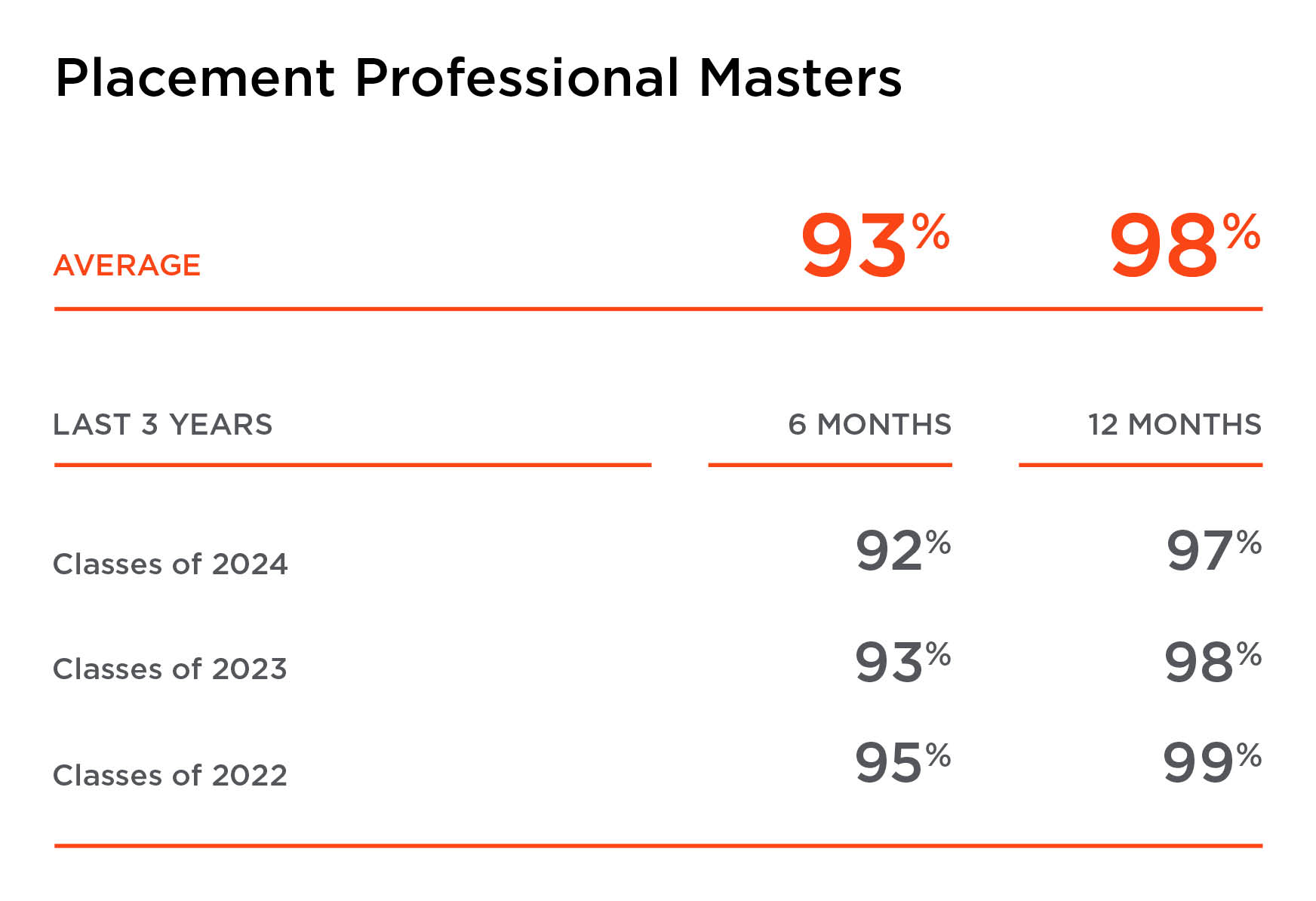
Alumni

Simone Assirelli – Italy
Data Scientist, Boston Scientific
Master in Data Science and Business Analytics (A.Y. 2023/2024)
"The Master in Data Science and Business Analytics at BBS has been a key step in my professional and personal development. It provided me with solid theoretical foundations and hands-on experience, allowing me to confidently take on my first role as a Data Scientist. I truly appreciated the high-quality teaching, the practical approach to projects, and the opportunity to collaborate with classmates and professors from diverse backgrounds. My advice to future students is to fully embrace the experience, make the most of every opportunity to challenge yourself, and build your career path with curiosity and determination."

Peter Baraka Opiyo – Kenya
AI Engineer/Data Analyst, Arete Consulting
Master in Data Science and Business Analytics (A.Y. 2023/2024)
"The Masters program offers an optimal balance between modular and extra-curricular activities geared towards exposing the student to new perspectives as well as to challenge their thought process. It afforded me the opportunity to learn among students with varied professional backgrounds and from diverse cultures. The professional masters program is a chance to not only grow your network but to also cement your professional niche among a diverse yet like-minded community."

Daniela Malavita – Italy
Analyst, Deloitte
Master in Data Science and Business Analytics (A.Y. 2022/2023)
"The experience in the Data Science and Business Analytics program at the Bologna Business School has been pivotal for both my professional and personal growth. The program offers comprehensive academic training and hands-on projects that equipped me with the skills to build the confidence to take on complex, data-driven challenges in my current role in a consultancy firm. I have found a supportive community and valuable opportunities to connect with the extensive network of companies provided by the School, which helped me shaping my career path. For future students, I would recommend taking full advantage of the practical projects and networking opportunities, as they provide essential preparation for a versatile career in data-driven roles."

Srinivas Jagarlapoodi – India
Data Scientist, Panini
Master in Data Science and Business Analytics (A.Y. 2022/2023)
"The master's program was instrumental in my seamless transition from a neuroscientist to a proficient data scientist. The program's holistic, multidisciplinary approach, seamlessly blending theory with hands-on applications, elevated my technical skills and fostered personal growth. My transformative journey at BBS empowered me to excel as a Data Scientist while gaining insights into global perspectives through engagement with international students and faculty. To future students, I strongly recommend embracing the program's cultural diversity, actively participating in practical applications, and leveraging the expansive BBS network for a globally enriched, and business-savvy transformative experience."

Aish Kumar Jesrani – Pakistan
Senior Data Scientist, Iveco Group
Master in Data Science and Business Analytics (A.Y. 2021/2022)
"Coming from a business-focused background, this master's program provided me with a strong foundation to successfully transition into the data science field. The well-rounded curriculum struck the perfect balance between theoretical concepts and practical applications, while the engaging teaching methods fostered a supportive learning environment. The Career services team also played a crucial role in helping me leverage networking opportunities and secure a professional position in the Italian market and in my preferred field. Throughout my time at BBS, I had the pleasure of connecting with remarkable individuals who not only enriched my educational experience but also contributed to my personal growth. "

Sidorela Topi – Italy/Albania
Data Scientist, Analytics Network
Master in Data Science and Business Analytics (A.Y. 2021/2022)
"The Master in Data Science allowed me to acquire skills that are increasingly sought after in the international job market, combining my financial background with statistics and machine learning through a highly functional approach and practical applications. Thanks to the BBS network I met wonderful people who enriched me with their culture and I got in touch with some of the most important Italian companies, where I got to know the company where I did my internship and where I currently work in the Data Science area."

Bassam Alkhatib – Jordan
Digital Data Analyst, Gucci
Master in Data Science and Business Analytics (A.Y. 2018/2019)
"The Master strikes the perfect balance between the required theoretical background necessary to establish a strong foundation in Data Science to build upon in my career in any direction, and the practical hands-on knowledge necessary to understand Data Science’s potential and applications in different settings. I benefitted in my studies here in many ways; I was taught and mentored by world-leading experts in the field of Data Science, I also made lifelong friendships with likeminded ambitious enthusiasts about this field from all over the world, and finally, being exposed to the Italian culture has been one of my most fulfilling experiences of my life. "

Calvin Omari – Kenya
Digital Specialist for the Regional Project for the Africa Minigrids Program, UNDP
Master in Data Science and Business Analytics (A.Y. 2018/2019)
"University of Bologna Business School opened my eyes to the expertise of Data Science with its top-class faculty members who not only guided us but delivered practical industry experience through coursework and internship, this has so far helped in me in my career as I have advanced to international assignments. The emphasis on Italian excellence came in handy and has been a great influence on my current role as a Data Analyst & Architect which demands precision and accuracy. The faculty and the networking off BBS community will always be a treasure to me."
COMPANIES
The goal of the Career Service is also to allow students to connect with national and international companies. Over the years, Bologna Business School has managed to establish a wide-ranging network and a sound partnership with leading companies in Italy, thanks to a personalized approach, based on each company’s needs. The collaboration features the following activities:
- Sending CV Books
- Sharing internship opportunities
- Company presentations
- Career days
- Project works
- In-class activities with case studies presented by Managers and/or HR professionals.
Moreover, companies support the Master in Data Science and Business Analytics with scholarships, professional opportunities, career fairs and company presentations.
The companies that worked with us in 2023/2024 are:
ACCENTURE AMPLIFON ARETE ARIA SPA AUTOCLUB AXYON AI BAKER HUGHES BARILLA BE SHAPING THE FUTURE BID COMPANY BONFIGLIOLI BOSCH BOSTON SCIENTIFIC CAMPARI CAPGEMINI CEFLA CHAMPION EUROPE COCA COLA HBC COMECER CRIF CUBBIT DATALOGIC DIENNEA DISPENSA EMILIA EGO UNDESIGN EIDOSMEDIA EMERSON ESSSE CAFFE EY FATER FIDIA FARMACEUTICI FINAPP GENERALI GLASSFORM.AI GRANAROLO GROUPM GUCCI HEINEKEN ICONSULTING INTESA SAN PAOLO IQVIA ITALTRACTOR IVECO JAKALA KPMG MAIORA SOLUTIONS MANAGEMENT SOLUTIONS MAX MARA FASHION GROUP MEMORAIZ MOTORK NTT DATA P&G PFIZER PIAGGIO PINKO PIRELLI PRIMA SIDERA PROMETEIA PWC RICHEMONT SAFILO SAVINO DEL BENE SCS CONSULTING SIA PARTNERS SIDEL SKY ITALIA SMART EUROPE SUPERNOVAE LABS TECHNOGYM UNIDO VAR GROUP VERSACE VERTIV VF CORPORATION VOLKSWAGEN
FEES
The tuition fee for the Master is 14,800 euros (VAT free) to be paid in three installments:
- First installment: 1,850 euros (by the enrollment deadline of the round you applied for)
- Second installment: 7,000 euros (November 2025)
- Third installment: 5,950 euros (February 2026)
The fee includes participation in the Master, all the study material available through the online platform, and access to the services and facilities of Bologna Business School.
Furthermore, the fee gives participants the right to take advantage of the supporting activities of the School, such as the language courses and the master lectures by invitation. Free parking is also available within the BBS campus.
Additionally, with the Student Card of the University of Bologna, students have access to all of the university facilities, including over 100 libraries, digital resources and study halls (including databases and online subscriptions); all university student related discount offers. More information is available on the site of the University of Bologna: http://www.unibo.it/it/servizi-e-opportunita
HONOR LOAN
For more information on honor loan, contact us by email: datascience@bbs.unibo.it
SCHOLARSHIPS
At Bologna Business School, we believe in the merit and potential of our students. That’s why, for each round of selection, we offer partial scholarships of €4,000 and €6,000 to candidates who stand out for their academic background, professional experience, motivation, and career aspirations.
Scholarships are awarded by the Admissions Committee, following the selection process, to the most deserving candidates who are ready to make the most of a learning experience that combines academic quality, links with a strong business newtork, and an international outlook.
Please note that full scholarships are not available and that financial aid programs from the University of Bologna (i.e. DSU, ER.GO) are not eligible for the Professional Masters held at Bologna Business School.
REQUIREMENTS
In order to be admitted to the Master’s course you must have:
- Bachelor’s degree (obtained by the enrollment deadline of the round of selection you applied for)
- Excellent level of English
The admission to the Master is subject to the positive evaluation of the selection test in line with the number of places available. The selection process, held online, consists of one Aptitude Test and one English Language Test, both prerequisites to be admitted to the motivational interview in English.
APPLICATION PROCESS
1. Register on “Studenti Online” by connecting to the site studenti.unibo.it
2. Select: First Level Master >Master in Finance
3. Pay the participation fee for the selection (60 euro)
4. Upload the required documents online:
- Curriculum Vitae in English
- Motivational letter in English
- Letters of reference in English (optional)
- Photograph of recognition
- Front and back ID/passport
- If available, a GMAT/GRE certificate with a score above 550 (GMAT) or equivalent (GRE). Applicants uploading this certificate are exempted from the written aptitude test as part of the admission process.
- If available, an English language certificate (TOEFL, IELTS or CAMBRIDGE) attesting a minimum English level of B2 in the European framework. Applicants uploading this certificate are exempted from the written English test as part of the admission process.
- For degrees obtained in Italy: Self-certification of Bachelor’s degree with details of exams taken and relative grades
- For degrees obtained abroad: Dichiarazione di Valore (to be requested at the Italian Embassy in the country where the degree was obtained) or Diploma Supplement (to be requested at the university where the degree was obtained). In the event that the candidate is unable to obtain the Dichiarazione di Valore or Diploma Supplement at the time of enrollment, he/she may temporarily replace it with a Conditional Enrollment Form, which will be sent after enrollment by datascience@bbs.unibo.it.
For further guidance, students who obtained a bachelor’s degree abroad are encouraged to check the page below: https://www.unibo.it/en/teaching/enrolment-transfer-and-final-examination/declaration-of-value-translation-and-legalization
For information regarding the selection process, please download the Call for Application and the related attachments.
CALL_PROFESSIONAL MASTERS CALL_MASTER IN DATA SCIENCE AND BUSINESS ANALYTICS INSTRUCTIONS TO APPLY TO THE SELECTION CONDITIONAL ENROLLMENT



